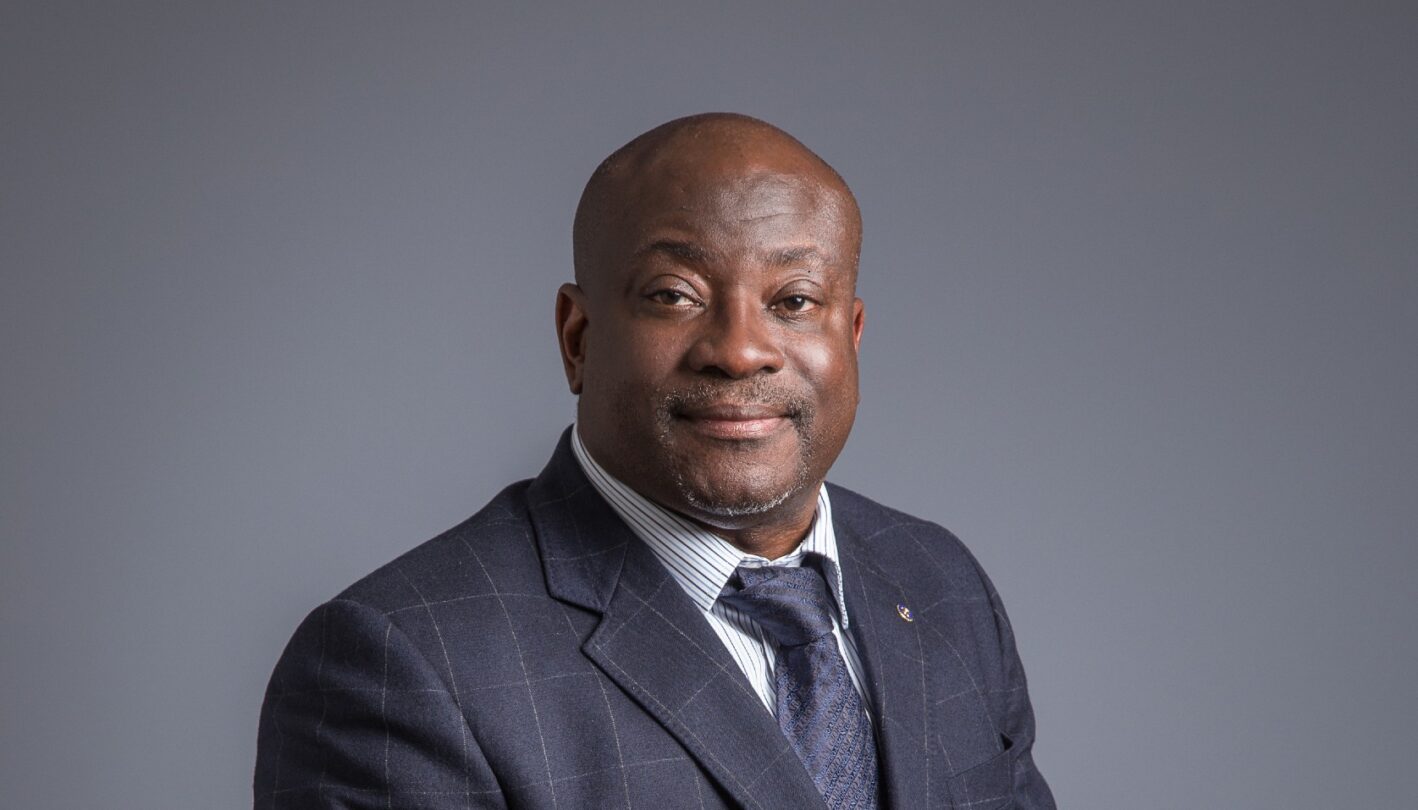Growth & Customers
Mark Esho: ‘My disability didn’t stop me building my business; here’s how you can succeed too’
The founder of Easy Internet Services talks about the importance of championing diversity and inclusion in your business.

In his journey as a black and disabled entrepreneur, Mark Esho is a man who’s had to face a challenging mix of double discrimination throughout his life.
Unlucky enough to be one of the last people in the UK to be struck down with polio, Mark was paralysed from the neck down at a young age, with a chance of survival given of about 10%.
However, he beat the odds and gradually recovered some mobility in his upper body.
Despite these early obstacles, he has successfully developed two businesses: search engine optimisation (SEO) company Easy Internet Services and web hosting provider Easy Internet Solutions.
Mark is ideally placed to share business wisdom with prospective entrepreneurs looking to set up their own businesses, particularly those from a disadvantaged minority.
Here’s what we cover:
If you have a disability, working for yourself might be a good option
If you fail, dust yourself down and try again
Testimonials work for getting new business
Look for new gaps in the market
Champion diversity and inclusion in your business
Look for business mentors and support
When interviewing, ensure your processes encourage diversity
If you have a disability, working for yourself might be a good option
It was drummed into Mark at an early age that education is vitally important. He got a master’s degree in Business Administration (MBA) and qualified as a part-qualified accountant.
Yet even with those strong workplace skills, Mark had trouble finding a job, and discrimination might have been an issue.
He says: “People would say I was over-qualified, making all sorts of excuses.”
Finally, one business did give Mark a chance, and he thrived there for about seven or eight years until he became ill again.
Sadly, after 30 or 40 years, many polio sufferers become weak because their muscles are fatigued, with some developing Parkinson’s Disease-type symptoms.
“I had to leave the job, which was one of the bleakest moments in my life. I’d worked so hard to get that job,” Mark says. “I had to think to myself—what do I do now?”
The answer was to set up his own business.
If you fail, dust yourself down and try again
Although Mark’s successes were to be with internet-based businesses, that wasn’t his background.
For his first business, he taught himself web design and set up a website called houses-online.com, which had the same premise as property company Rightmove—a website that lists and advertises properties.
Unfortunately, Mark couldn’t get funding, causing the venture to flop, with the bank “laughing [him] out of the door”.
But all Mark’s work in marketing his first business and topping the search engines led to him coming across SEO, which was beginning to become the essential digital marketing specialism it is today.
He says: “I knew that there was the possibility to monetise the SEO work I was doing, so I set up an SEO agency.”
Testimonials work for getting new business
Mark couldn’t pitch the business physically, and he was all too aware of the kind of discrimination he had to overcome.
He contacted four companies, promising them he’d get them to the top of search engine rankings. Instead of asking for payment, Mark asked for testimonials.
Equipped with these testimonials, Mark contacted another set of businesses, promising them he’d get them to the top of search engines but only requiring payment after getting results.
Mark’s business strategy succeeded, and he now had his first brand, Rank4U, which would later become Easy Internet Services.
He says: “We did no placement, no fee SEO for about five years. Within two years, I was recruiting people.
“We did work for brands like The Guardian, the Co-Op, and Amstrad, so some big names.”
Look for new gaps in the market
While running his SEO agency, Mark saw a gap in the market that he thought could be a good shout for a second business.
He saw that many of his customers were paying thousands of pounds for web hosting when he understood they could get these services far cheaper.
“I set up a free web hosting service in the UK,” he says. “It differed from US web hosting providers, which made their money by advertising on your website.
“We made money by limiting the bandwidth.”
Mark is still involved with Easy Internet Services and Easy Internet Solutions but is more of a consultant. His wife runs the digital marketing side, and he has a business partner managing the web hosting arm.
Champion diversity and inclusion in your business
In his journey as a disabled entrepreneur, Mark has experienced a lot of discrimination. Has anything improved since he started out?
Statistics show that disabled people are 28.6% less likely to be in employment than non-disabled people. In 2019, there was an employment rate of 53.2% for disabled people aged 16 to 64, compared to 81.8% for non-disabled people
“I don’t think things have moved on that much,” says Mark. “It’s slowly improving, but progress is still very, very slow.
“However, I think more businesses are seriously embracing diversity and inclusion.”
Mark is actively working to champion diversity and inclusion, running a social enterprise called Access Rating, run by and for disabled people.
Access Rating has developed an app allowing people to submit disabled access reviews for all public venues across the UK.
Mark says: “The way we make money is by doing disabled access audits and disability awareness training. We’re seeing an increase in people asking for the training, which is great.”
Access Rating has also taken advantage of remote working, employing disabled people for back-office work in places as far flung as India and the Philippines.
Look for business mentors and support
Mark says disadvantaged people looking to start their own companies should look at business mentors who have been there and done it.
He says: “If you’re black, for example, it may be helpful to find a black business owner who has started that journey already.”
Do your research, as different organisations and government agencies offer support, such as the Department of Work and Pensions.
Also, look at Access to Work, a publicly funded employment programme that aims to help more disabled people to work for or start businesses.
Mark says: “You could get a grant worth up to £60,000 a year, which a lot of people don’t know. I only found out about it a couple of years ago.”
He feels that it helps if anybody going into business on their own is passionate about what they’re doing, and not simply because they want to make money.
He says: “If you’re only after money, the business is not going to last because running a business is exceptionally hard.
“If you find something you’re passionate about, you could be working on that business 24 hours a day, and you wouldn’t feel it because you love what you’re doing.”
When interviewing, ensure your processes encourage diversity
When the time comes for you to employ people, think about diversity and inclusion. After all, there is not one size, policy or strategy that fits all.
All businesses should be proactive, clearly stating that they welcome applications from all sectors of the community.
Mark says: “Modify to the needs of the individual. Do work trials—at Access Rating, we sometimes tell people to come to work for us for a day.
“The candidate gets access to us—it’s like an extended interview.”
Businesses might look at ‘positive action’, where you take specific steps to improve equality in your workplace.
Under the Equality Act 2010, you can take a range of measures to encourage and train people from under-represented groups to help them overcome disadvantages in competing with other applicants.
Positive action must not be confused with positive discrimination, which is unlawful, such as the setting of quotas and any form of preferential treatment.
Instead, it would help if you were proactive with the way you look at applicants.
Mark says: “You may have one candidate who is disabled and who isn’t, and the one who has a disability hasn’t got as much experience.
“But you can see through that when you think to yourself that perhaps the reason the disabled person hasn’t got as much experience or exposure was that they haven’t had the opportunity.
“Give people a chance and opportunity to prove themselves.”
Understand unconscious bias
An analysis produced by the government says that in late 2020, the employment rate for people from minority ethnic backgrounds was 9.5% compared to 4.5% for people with a white ethnic background.
People from black ethnic backgrounds (13.8%) and Pakistani (7.9%) had the highest unemployment rates.
Mark does believe that the situation for people from minority backgrounds has changed for the better.
Some have high-profile positions in government and business, which shows there’s an opportunity for anyone of any race to prove themselves.
He says: “Black people don’t want charity—they wouldn’t accept that in any way. They want a chance. It’s good that we’re starting to see those given now.
“I think things are opening up for black people, but we still have a long way to go because we’re still tackling unconscious bias.”
Unconscious bias is how a person might think based on their life experience that might not be fair, correct, or reasonable.
You could think less of somebody because you are different, whether of race, religion, or age. It could move you to make decisions based on false beliefs or assumptions.
“You can’t get rid of unconscious bias because everybody has it,” Mark adds.
“But somebody can train you on how to identify you’ve got an unconscious bias and tell you what you can do about it.”







Ask the author a question or share your advice